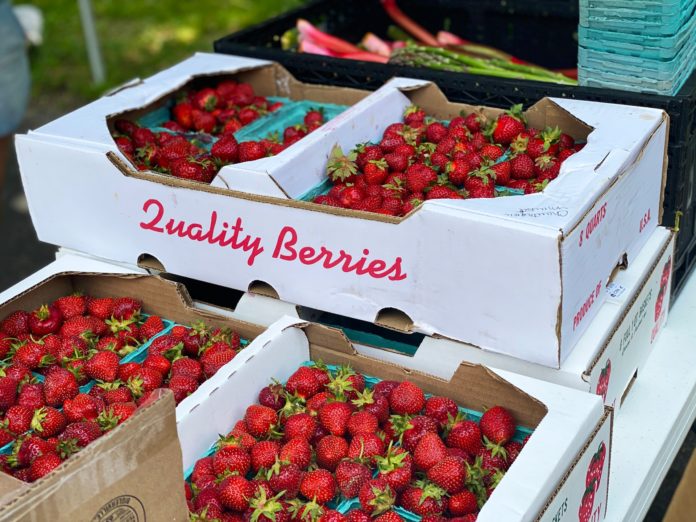
Realizing the magnitude of damage caused by counterfeiting to the Indian economy, brands, and consumers, Authentication Solutions Providers’ Association (ASPA) and GS1 India have joined hands to fight against counterfeiting to the next level in India.
ASPA (Authentication Solutions Providers’ Association) is a self-regulated non-profit organization representing the entire physical and digital authentication solutions industry. GS1 India, a standards body, is responsible for administering the use of global supply chain standards in India that enable businesses to implement counterfeit detection and product authentication solutions to safeguard their supply chains.
The two organizations have signed an MoU to work towards mainstreaming and nurturing the anti-counterfeiting ecosystem by promoting the use of standards-based solutions for the betterment of industry and consumers.
Counterfeit incidents in India
According to reports, counterfeit products across various sectors in India are causing losses of over Rs 1 trillion every year to the government. The number of counterfeit cases increased by nearly 24% in 2019 compared to 2018. This causes businesses to lose brand equity and revenues, besides putting consumer safety at risk.
According to ASPA counterfeit repository findings, alcohol, FMCG, pharma, tobacco, agriculture, and automotive are among the top sectors with the highest number of counterfeits in 2018 and 2019. During the Covid-19 pandemic period (between January to March 2020), over 150 cases of counterfeit incidents had been reported in the media. In March and April 2020, more than one case per day was reported related to fake PPE’s kits, sanitizers, and masks.
Speaking about the partnership Nakul Pasricha, president, Authentication Solution Providers’ Association (ASPA) said, “We are committed to build the authentication ecosystems in the country and enhance our relationship with other bodies working in the same space. The authentication environment will support the Government “make in India” initiative and its image at a global level, where trust is becoming an especially important factor. We need to ensure that the “Make in India” products are genuine, safe, and secure until they are delivered to the end consumer.”
He added, “Involvement and active participation of all stakeholders is extremely crucial in this, as a lot of awareness is required at the industry, consumer, and government level. We are sure that by combining resources of GS1 India and ASPA. We will add more momentum to our endeavors in fighting the menace of counterfeiting and develop the anti-counterfeiting ecosystem.”
S Swaminathan, chief operating officer, GS1 India, said, “At GS1 India, we are constantly working towards overcoming the blocks in the global supply chain that prevent visibility and transparency. With this partnership with ASPA, we aim to strengthen our endeavor further to address the ever-growing threats presented by counterfeit products in existing supply chains. The use of GS1 standards and solutions like traceability, Smart Consumer app, DataKart will help Indian businesses gain the trust of their consumers and trading partners by seamless sharing of product information. This would also act as a foundational step in our journey and empower consumers to authenticate products using the Smart Consumer mobile app.”
ASPA and GS1 India will work together to create awareness about the counterfeiting problems and build knowledge through various tools, including training, publishing articles, enriching websites, and others, to drive adoption of global standards for detecting and controlling counterfeits.
IndiFoodBev — authentic, impactful and influential
An English-language food and beverage processing and packaging industry B2B platform in print and web, IndiFoodBev is in its third year of publication. It is said that the Indian food and beverage industries represent approximately US$ 900 billion in revenues which implies more than 20% of the country’s GDP. Eliminating the wastage on the farmside can help to deliver more protein to a higher number of the population apart from generating sizable exports. The savings in soil, seeds, water, fertilizer, energy and ultimately food and nutrition could be the most immense contribution that country is poised to make to the moderation of climate change.
To improve your marketing and grow sales to the food and beverage processing and packaging industry, talk to us. Our research and consulting company IppStar [www.ippstar.org] can assess your potential and addressable markets in light of the competition. We can discuss marketing, communication, and sales strategies for market entry and growth.
Suppliers and service providers with a strategy and budget for targeted marketing can discuss using our hybrid print, web, video, and social media channels to create brand recognition linked to market relevance. Our technical writers are ready to meet you and your customers for content.
The second largest producer of fruit and vegetables in the world is continuously expanding processing capacities and delivery systems with appropriate innovative technologies. We cover product and consumer trends, nutrition, processing, research, equipment and packaging from farm to thali. Get our 2025 media kit and recalibrate your role in this dynamic market. Enhance your visibility and relevance to existing markets and turn potential customers into conversations. Ask for a sample copy of our bi-monthly in print or our weekly IndiFoodBev eZine each Wednesday.
For editorial info@ippgroup.in — for advertisement ads1@ippgroup.in and for subscriptions subscription@ippgroup.in
Naresh Khanna – 10 February 2025
Subscribe Now










